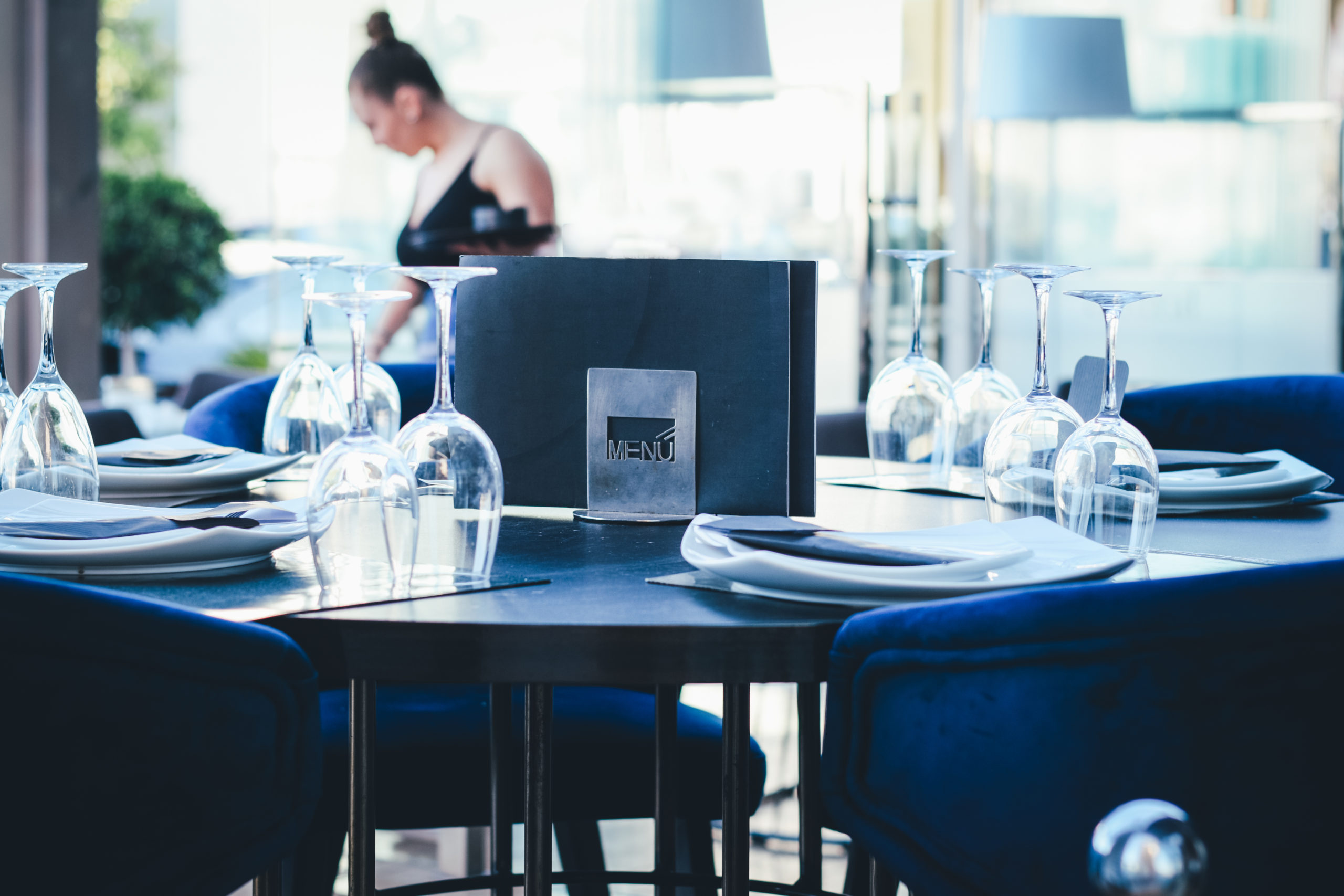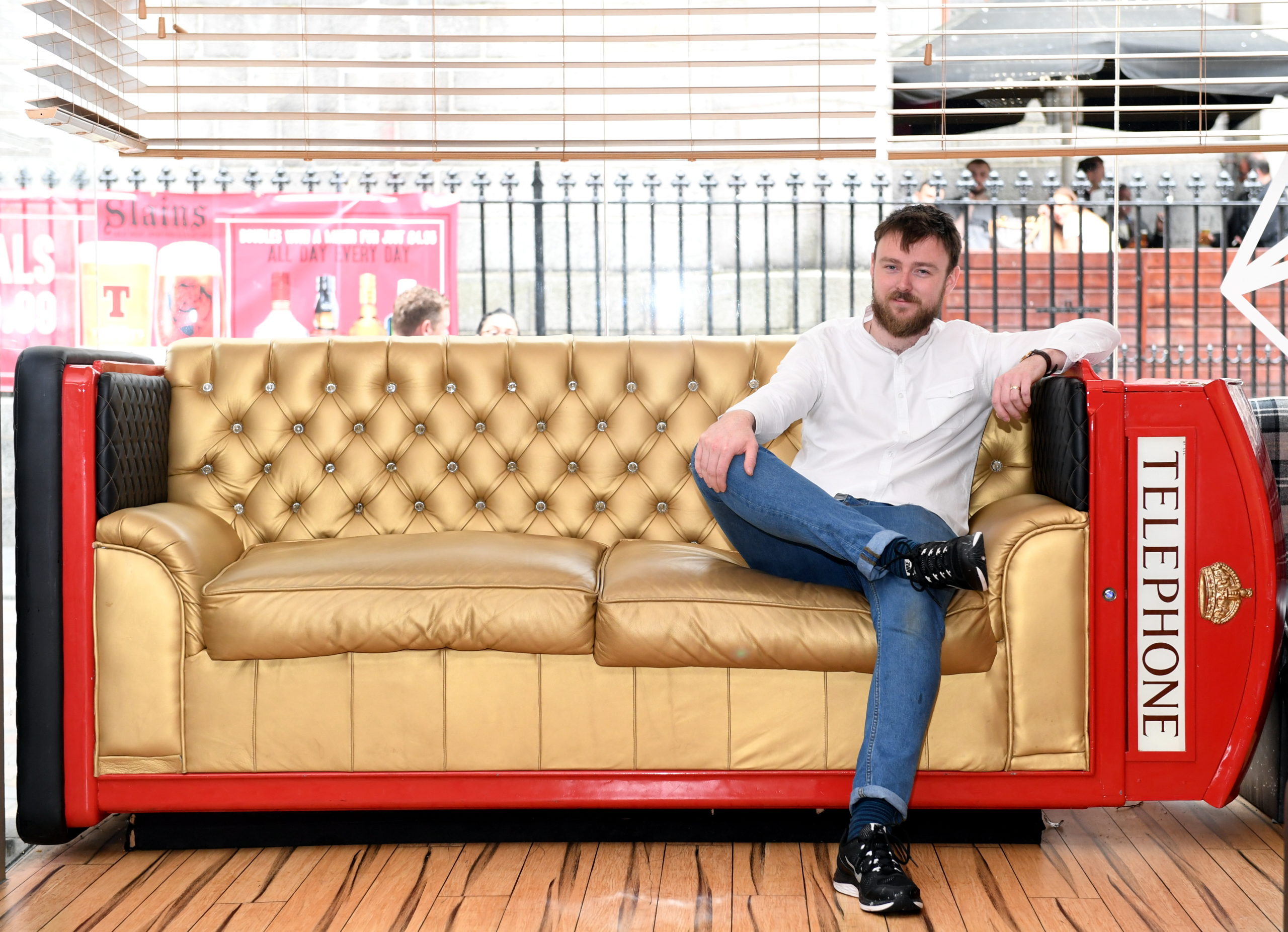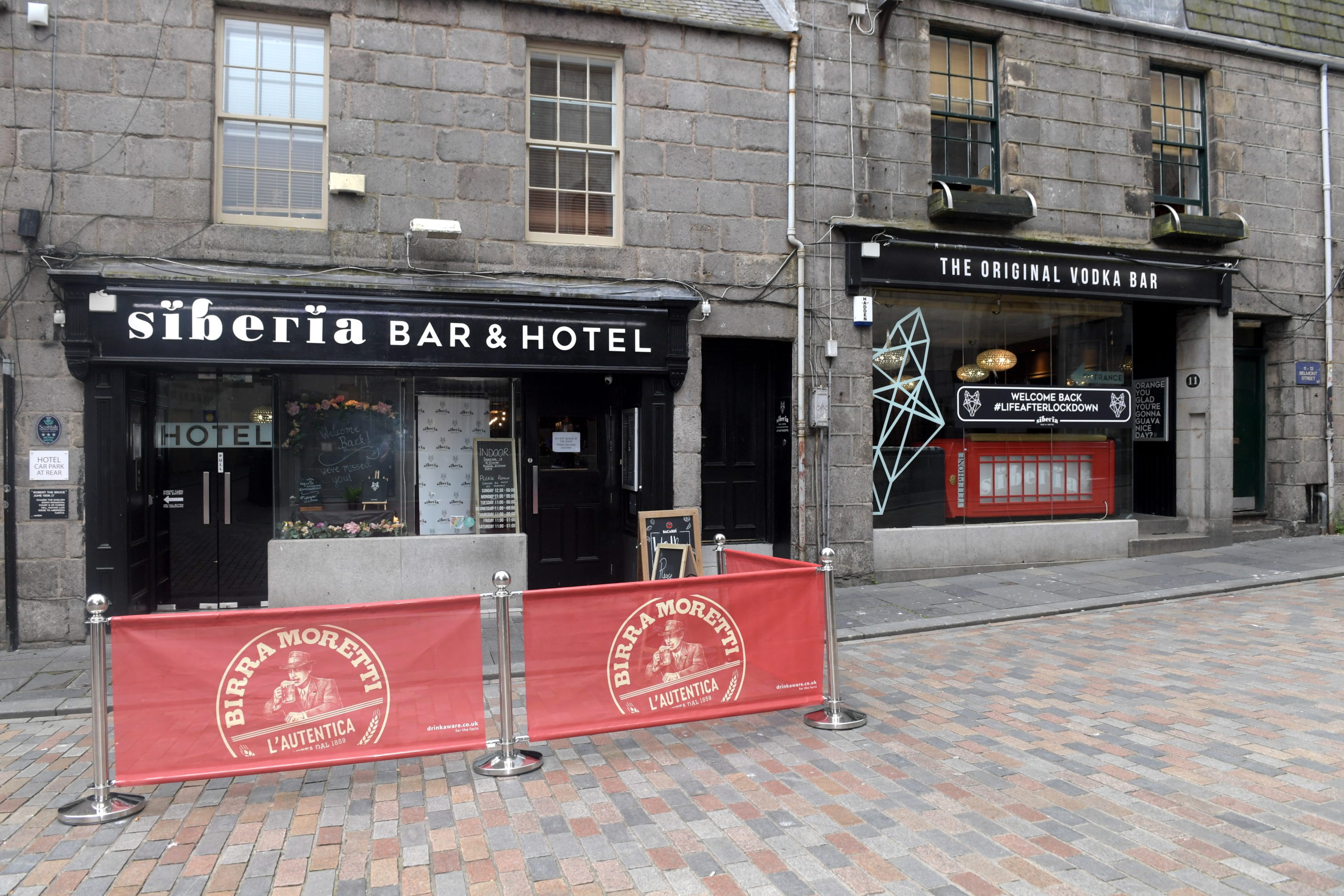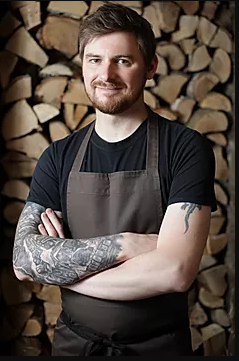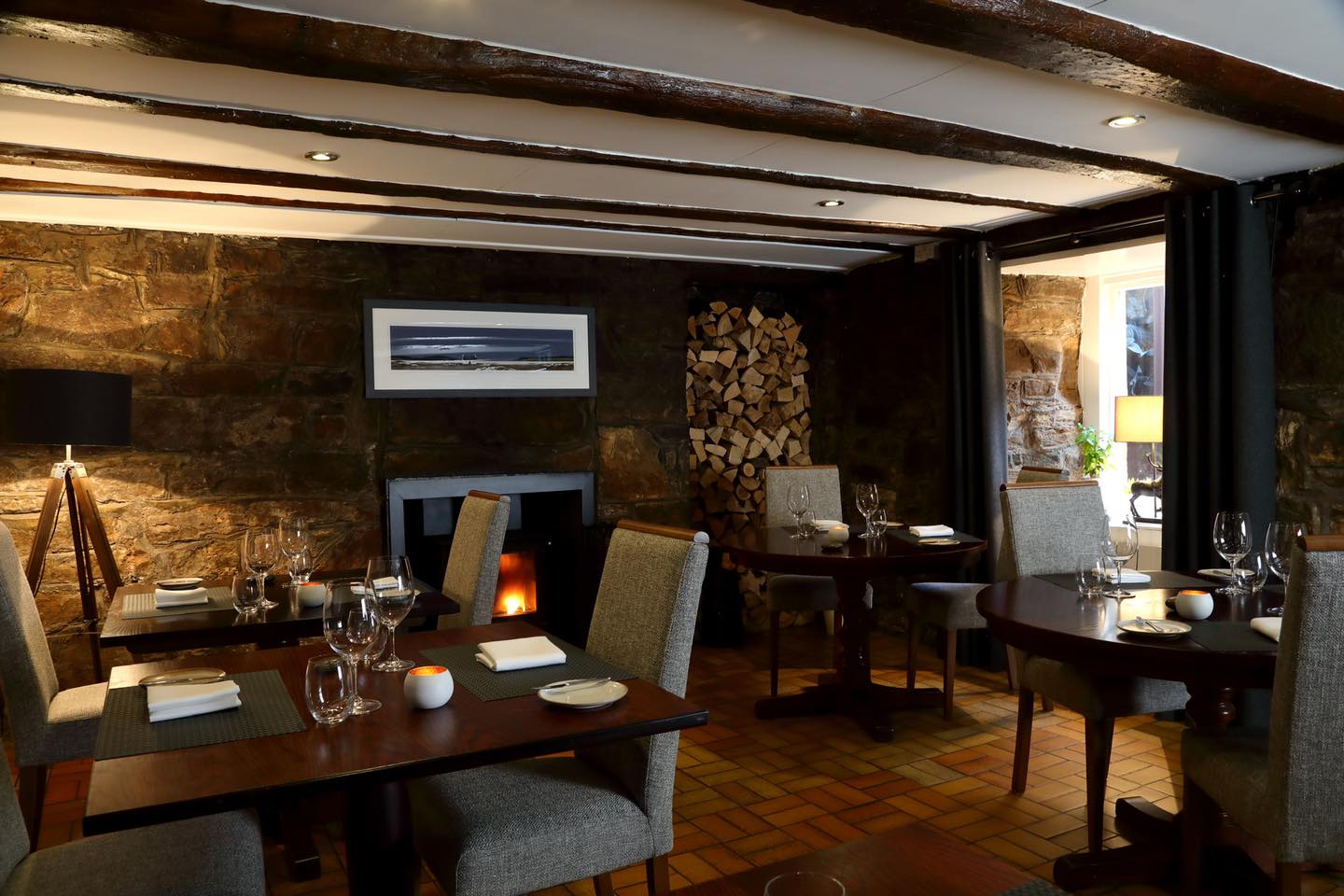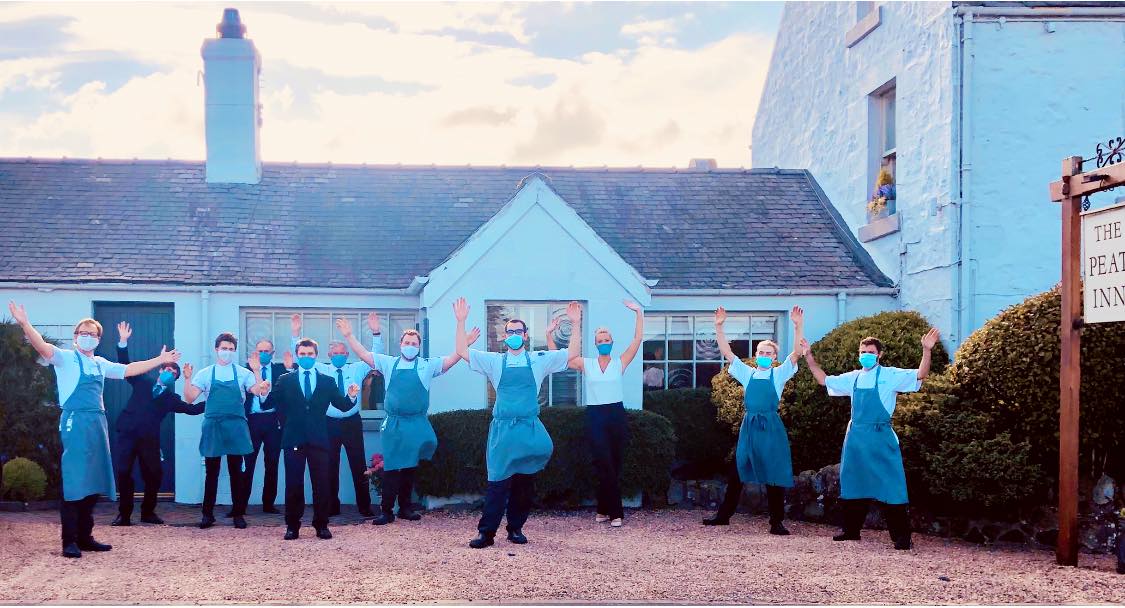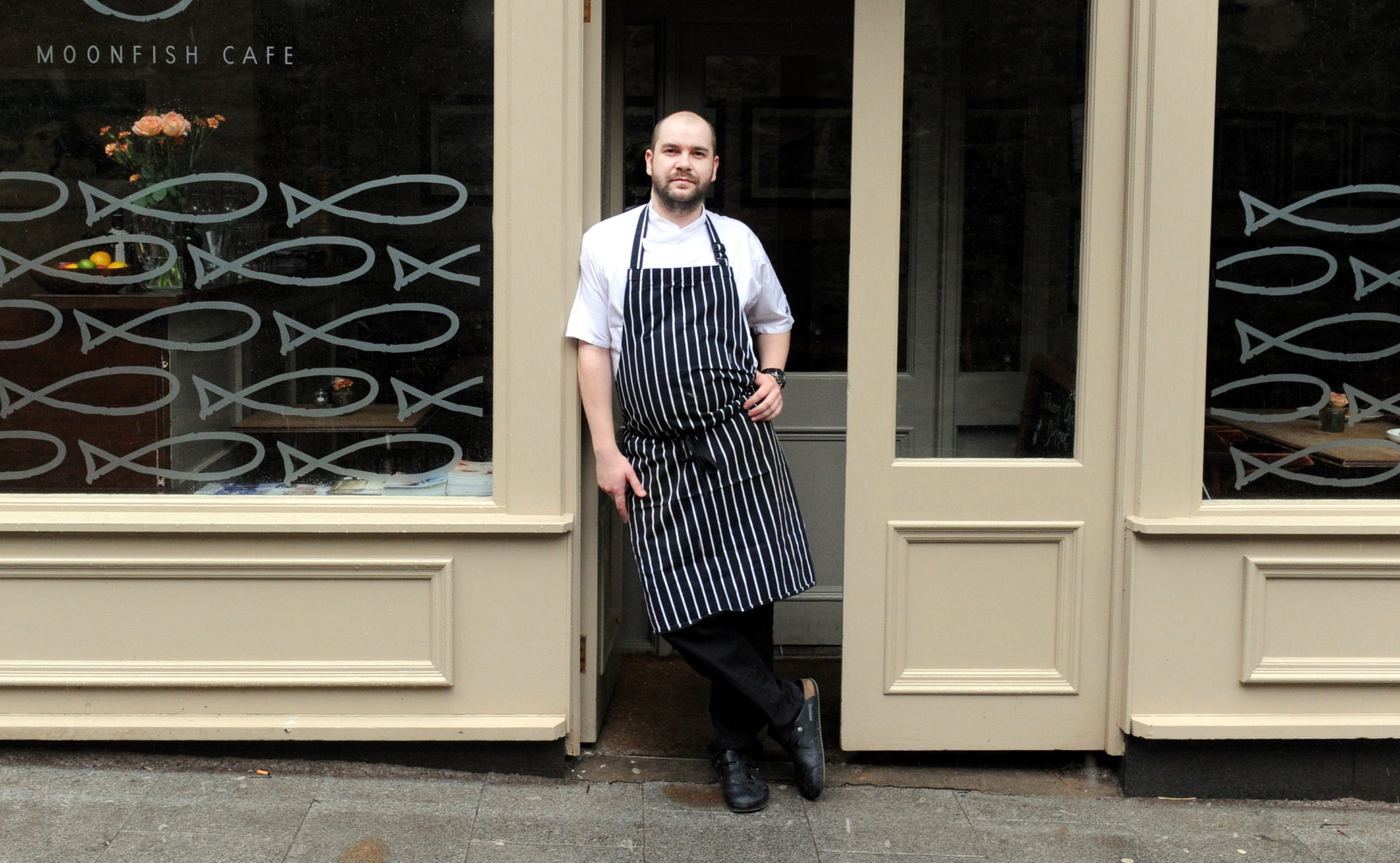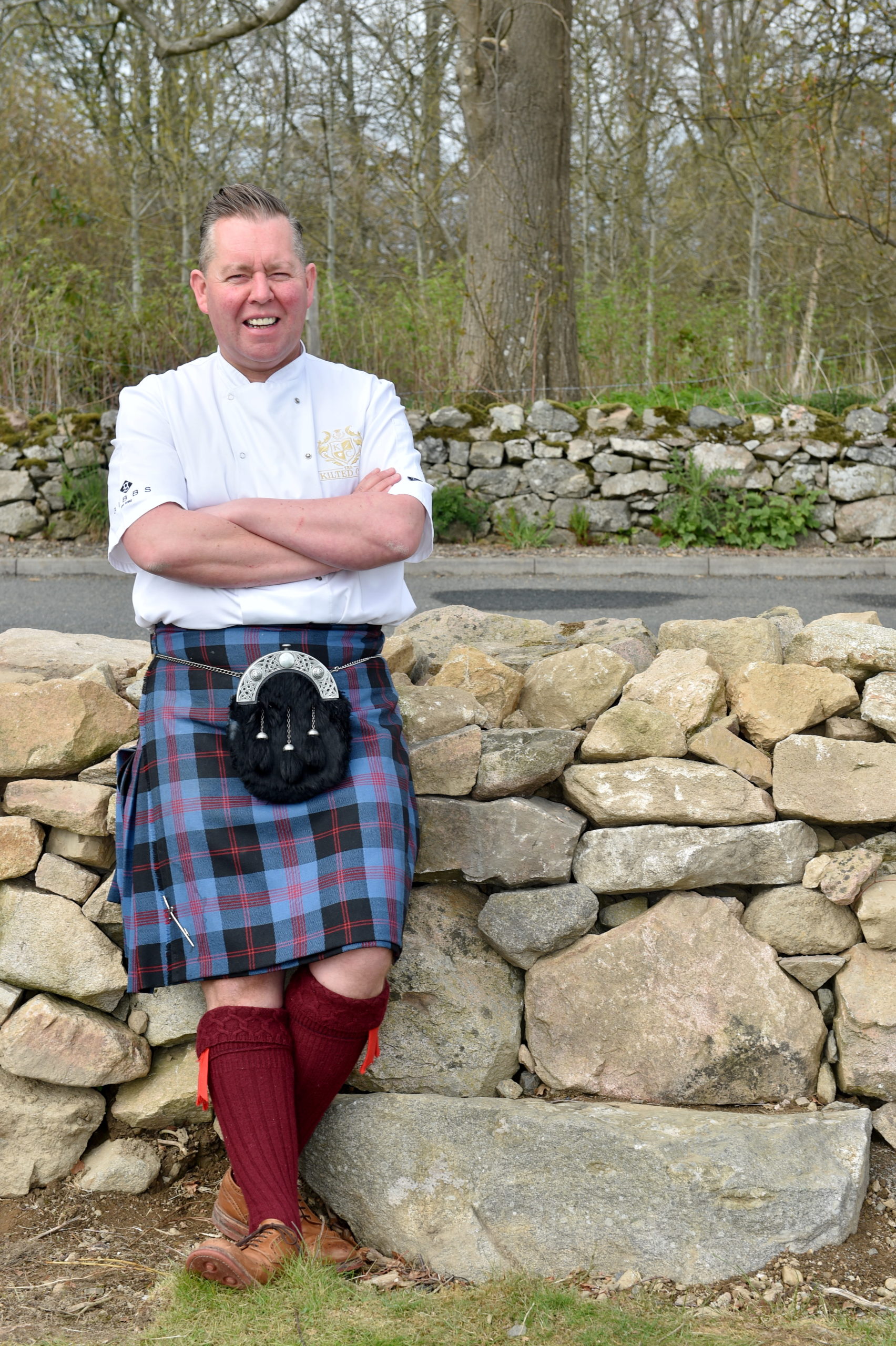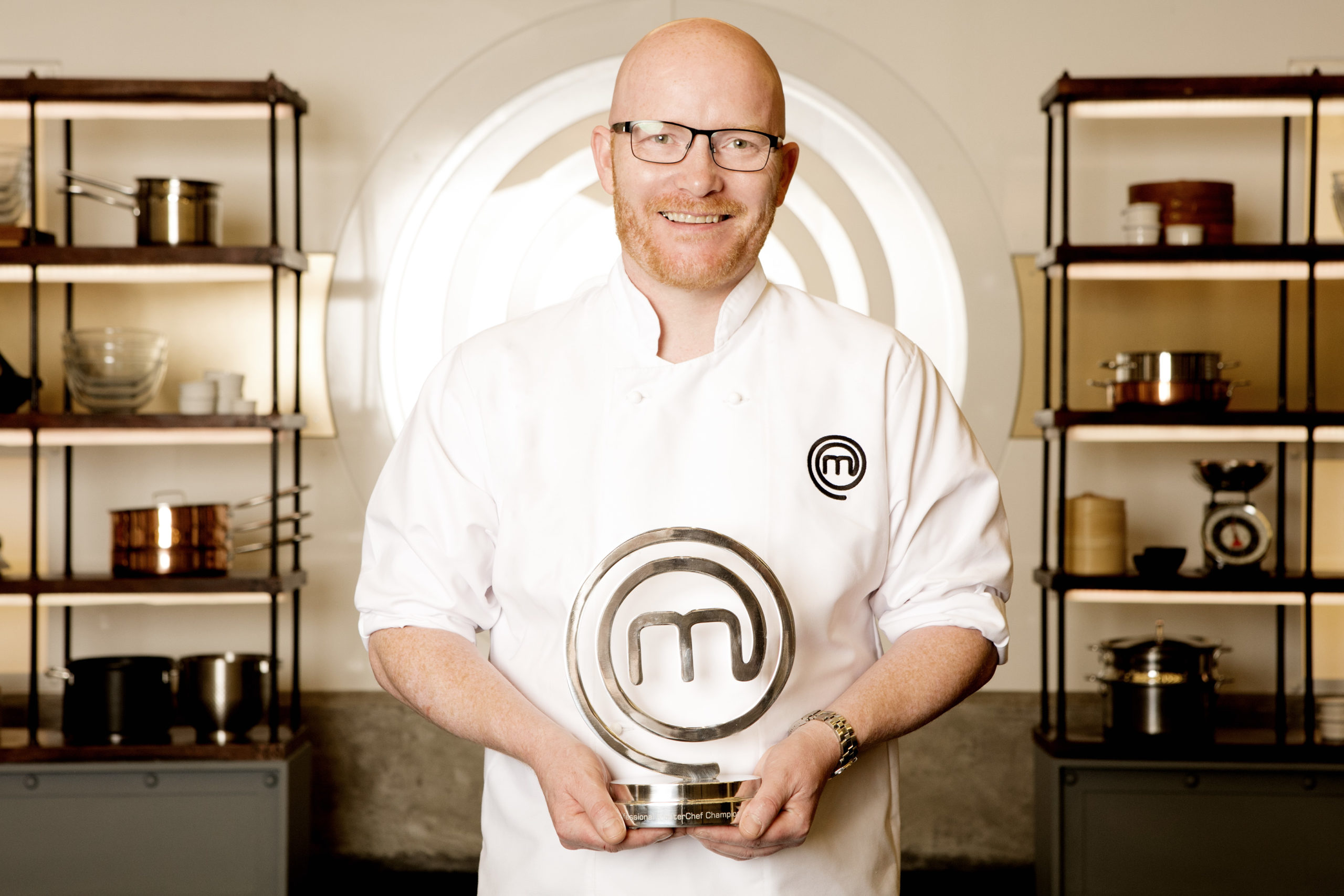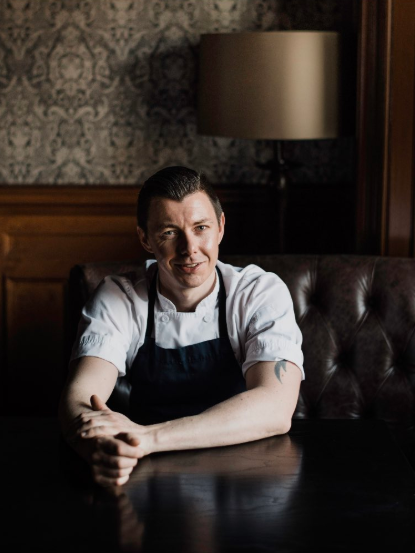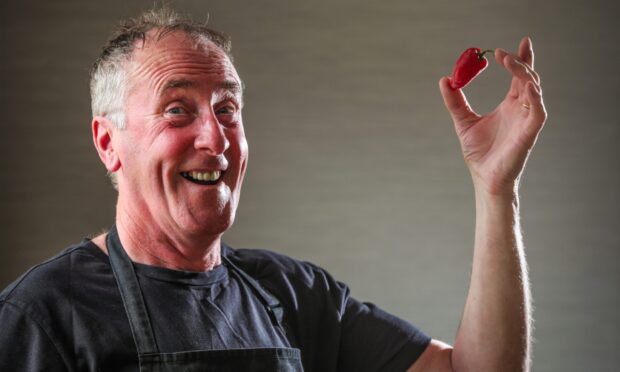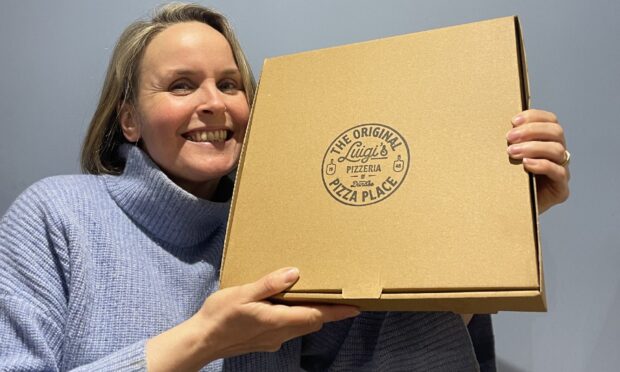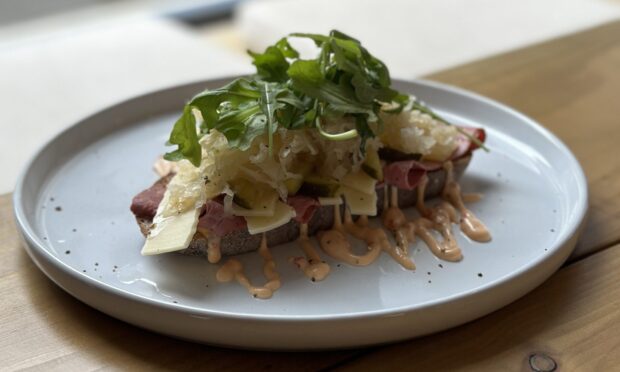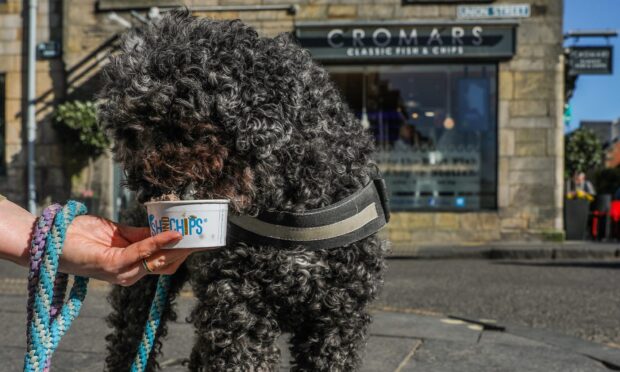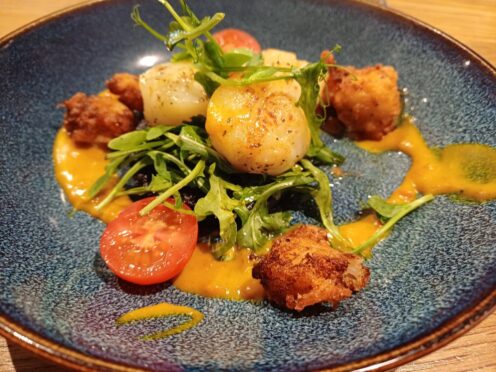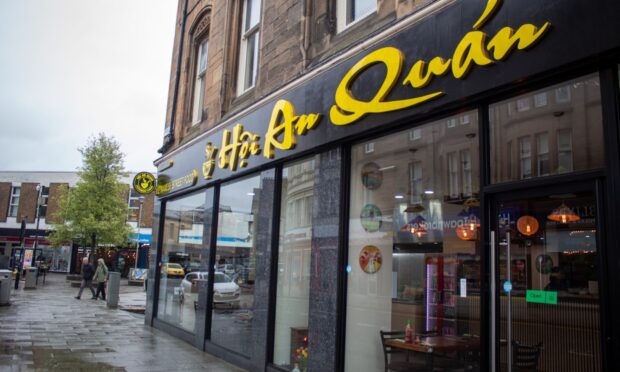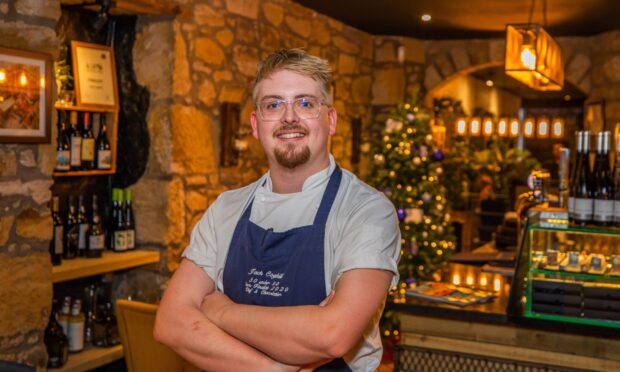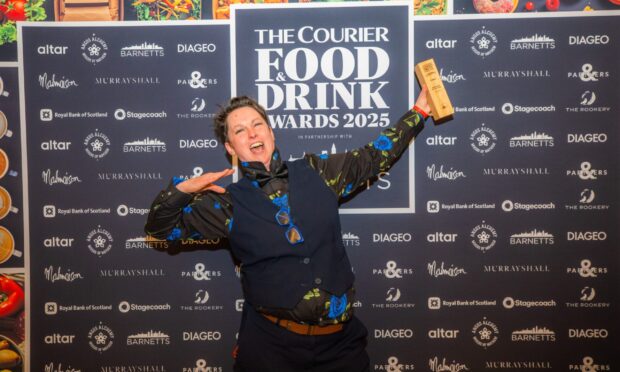Julia Bryce speaks to top Scottish chefs and restaurateurs to find out why the time to take back the dining room is now and explores why the “no-show” culture must go.
Many restaurateurs and chefs have worked for years, if not decades in building up their eateries, making them the success they are today.
But with the tidal wave of issues Covid-19 has brought with it to the hospitality industry, there is one issue lurking in the shadows which may be worse than having to rearrange restaurants to meet government guidelines or work with PPE and masks on – and that is no-shows.
Not showing up to a restaurant can be fatal to some businesses. Now, more than ever, the hospitality industry needs customers to be a kinder, and a little more willing to dine out what with restricted service times, limited table space and increasing staff costs as more and more people come back to work from furlough.
This isn’t a game, this is survival.
Without customer support these restaurants and eateries will vanish from existence, and that promise of going out to support them and championing local, will be nothing but empty words, a silence that will replace the hustle and bustle of dining rooms across the country.
While I appreciate not everyone is up to venturing out to restaurants just yet (which is completely understandable), these are not the individuals the hospitality industry is worried about. It is those who think that they can toy with livelihoods and the fate of businesses by not turning up for their reservations with whom there lies an issue.
And for those not feeling up to going out, you can still support your favourite local eateries by purchasing takeaways or gift cards, or supporting their crowdfunders.
The no-show culture must go
British chef Tom Kerridge was disgusted with diners’ no-show behaviour when 27 people failed to turn up to his eatery in the Corinthia Hotel in central London when it reopened. Describing the situation as “disgraceful, shortsighted and downright unhelpful”, he added that the industry was already facing issues and was “on the verge of collapse”.
He wasn’t the only one to experience this as a flurry of chefs across the country took to social media, disheartened by the lack of support from some of the public.
Gusto, a small chain of Italian restaurants in Scotland, the Midlands and north of England, reported 800 no-shows in the first four days after reopening.
Siberia Bar & Hotel – 1,010 no-shows
In Aberdeen, Siberia Bar & Hotel experienced 1,010 cancellations/no-shows within the space of three days.
But Stuart McPhee, director of the venue is staying positive. While the no-show rate has been high, the venue has experienced a great number of honoured reservations throughout the past two weeks and Stuart is keen to celebrate those who turn up, rather than those who do not.
He said: “Things are going really good and we’ve had great feedback. Everyone is being safe and we’re making a good amount of money. I’ve seen quite a few people speaking about how no-shows can be the difference between make or break, and I looked at ours and was quite shocked. Don’t get me wrong, we’re still flying and doing really well. The numbers demonstrate it is happening at such a scale. People are just booking and thinking they don’t need to go or not show up.
“If you’ve got the wiggle room to adapt tables and get walk-ins, then this can be really positive as it almost replaces those no-shows. If we had everyone with reservations turning up and also had walk-ins then we could be doing even better, and we’re already doing really well.
“You can see that down the line if this continues at this rate and you are booking preferred and you get that level of people not turning up, then what’s the point?
“People have full control of their bookings and we’ve seen a lot of people cancelling in good time – I appreciate things change. But if you’re not going to come, why make a booking in the first place? It’s a bit of a minefield and 1,010 people cancelling or not turning up is really incredible.
“On any given day we’re looking at 160-180 bookings. If we took a deposit that would be 160 emails, phone calls and card transactions to take a redeemable deposit on money they are already going to spend anyway. Paying someone to take that money, the value is then lost. I would personally be put off paying to book a table somewhere, but I don’t know what is best to be honest.
“I’m really happy how things are going so far, but I can see this as a little niggle which will get bigger and bigger as we go forward.
“I think it is more important to show people what a positive impact they can have when visiting a bar or restaurant. How coming in helps producers, the staff, local business, all that sort of thing. I think we should be celebrating more of those who are coming in and showing support.”
The Cock and Bull – At a loss…
The Cock and Bull in Balmedie, Aberdeenshire, also experienced a number of no-shows on its opening weekend, with owners highlighting the issue on its Facebook page.
The post read: “It is disappointing that I have to write this post as we really do have the most loyal customers who have shown so much support through this difficult time, however, we had four tables of diners who did not honour their reservations last night which is incredibly frustrating.
“We are running the restaurant at 60% capacity at the moment meaning we are working with incredibly small margins so four no-shows can be the difference between breaking even or operating at a loss. We do not want to go down the route of taking deposits so ask that if you can’t make your booking, please please let us know. We understand that plans can change but please pick up a phone so that we can resell the table, people’s livelihoods are at stake.”
But what can be done?
I guess the question here is more about how we safeguard this already uncertain industry which was challenged regularly long before coronavirus.
Do eateries take deposits? Do they charge for tables not turning up? Blacklist them maybe? Or do they just do what we’ve always done?
Cancelling a reservation in good time shouldn’t be hard and while many eateries are making it as easy as possible for customers to book or cancel, how does it deal with no-shows and what does not turning up to a restaurant actually mean for the business?
The Cellar – Cancellation policy
In Fife, Billy Boyter, head chef and owner of The Cellar in Anstruther reopened his restaurant at the weekend, welcoming guests back for the first time in four months.
While he didn’t experience any no-shows throughout his opening weekend, Billy introduced a cancellation policy a year and a half ago to safeguard his business.
He said: “It was great having people back in. That feeling of getting back to some sort of normality and getting the team back. A lot of the customers we had in at the weekend were regulars so it was nice to see everyone.
“There was no ‘no-shows’ over the opening weekend but a year and a half ago we introduced taking card details for bookings and put a cancellation policy in place. We charge menu price if no one shows for their table in the evening.
“I think we all need to realise a lot of restaurants are operating with reduced covers and they really, really rely on that revenue. At the moment, we can only do 16 tables, before we could do 22. If we lose a table, any size table, that’s a massive impact on revenue for that day. If you can’t come, make sure you call the restaurant. Most restaurants at the weekend are fully booked and have waiting lists, but it is a shame when people don’t think about the impact it can have.
“All of our bookings are online now and we get all of the details that way, but there’s a lot of strain on restaurants with all the measures they are having to follow to operate properly so there’s a lot more pressure.”
With the push from some looking to the government to roll out a no-show scheme which would see all restaurants taking deposits, Billy says an initiative like this may just be the answer.
He added: “When we changed to taking deposits, we were worried it would put off guests or we would lose custom but at the end of the day, you have to protect your business. I think having something like that in place, if it was across the board, that you had to leave your card details to reserve a table and have a booking charge, I think it would be a good thing as it would become the norm and would protect businesses across the board.”
The Peat Inn Restaurant with Rooms – Past problem…
Katherine Smeddle, co-owner of The Peat Inn Restaurant with Rooms, reopened the venue on July 15. While the team have been lucky in not experiencing no-show diners, this has been a problem in the past.
She said: “Opening has gone really well and there’s been a massive surge in people wanting to get out and it has been great. We don’t take deposits for tables under eight, though currently we are not taking any. From my point of view it is this fear of being put into lockdown again and having to refund deposits – which is just heartbreaking as you’ve got no money coming in, all of your suppliers and wages to pay at the end, and you’re just watching your bank balance go down as more people ask for their deposit back due to government guidelines.
“I’d rather take the hit of a couple of no-shows than ever go through that again. We usually only take deposits for rooms and larger tables, and that was really put in as a measure to stop no-shows from happening. We will get back to that, but we’ll wait until the world is a little more secure first.
“We began taking deposits this year for graduation week as last year we had no-shows which is difficult for the business and also a shame for people that had tried to book and couldn’t get in. In Fife, a lot of the businesses will get together to ensure we’re all on the same page with deposits and things like that.
“We were also on furlough wages and we furloughed our whole team. If you are a director of a company you can continue to do the paperwork, answer emails and things, but if you are making any money for the company, you cannot furlough yourself. So I thought ‘oh we can’t take any deposits then’.
“Our feeling is that you cannot book a theatre ticket or plane/train/bus ticket and expect not to pay if you don’t turn up. It is unfair on our industry especially at a time when businesses have been closed and had no income for such a long time.
“I think that era of not wanting to pay much or wanting the VAT cut to benefit them when businesses are potentially close to going under is ending, hopefully people will start being kinder. If you’ve booked at a restaurant you’ve got to show up because it’s not just the business owners at stake, it’s the staff, too.”
Moonfish Cafe – ‘No way a new problem’
Brain Mcleish, owner of Moonfish Cafe in Aberdeen reopened his restaurant last week.
He said: “This is by no way a new problem. This has been an issue for hospitality for such a long, long time. I feel like we almost walked ourselves into it, we were probably too soft. Everyone else like hotels, concerts have much stricter policies – you’re paying full price up front. I think we’ve backed ourselves into a corner that will be hard to get out of.
“We’re definitely going to stand strong on our cancellation policy as I think it is the right thing to do. Places are struggling just now with reduced seating and we just can’t afford to have people not turn up. We’re also understanding. If you can’t come, just get in touch with someone. No one wants to take money for no reason but you almost have to because people are taking advantage. I don’t understand why people are so against it. If you’re booking a table in good faith then I don’t know why you’d have a problem with it.
“We have had one no-show in a week, which is pretty good, fingers crossed we don’t get any more. I’ve seen restaurants in England posting about huge numbers of no-shows online and we’ve luckily not had that ever. I think it might be because Aberdeen doesn’t have such a vast choice and you won’t change your mind so last minute.”
Eat on the Green – Deposit success
While Eat on the Green in Aberdeenshire may not have opened its doors, the eatery has already been taking deposits for groups of six or more for 16 years.
Craig Wilson, head chef and owner, said: “When we opened the restaurant 16 years ago deposits was something we started taking for bookings of six or more. You can’t book online for a table of six as a result. As a small business the effect is more than moving a chair. It can quite often mean different shift patterns and you simply could lose business if people don’t honour their reservations.
“It has always been very important, but there has never been a more important time to respect any small business in hospitality right now. We are still spinning plates to try and make it work. Where freshness is involved say for afternoon teas or in hotels, if it’s not used then it is just taken off the bottom line, so I understand why people take deposits.”
Scotland’s National Chef and MasterChef: The Professionals 2016 champion Gary Maclean
Award-winning chef and MasterChef: The Professionals 2016 winner Gary Maclean has worked in the industry for decades and is currently a senior lecturer at City of Glasgow College, helping shape the talent of today.
Thinking back to the time of owning his own eatery, Gary can’t recall no-shows being as big an issue as they are today.
He said: “I think it seems to be getting worse. I don’t remember it being quite as bad as it is just now. It kicked off with a lot of the big named chefs talking about paying deposits but I don’t think people realise the impact of not turning up, or booking a few restaurants and deciding on the night can have. The hospitality industry in a normal year is tough in keeping your head above the water, but with everything just now, a lot of restaurants have reduced numbers and are doing their best to get people back.
“It’s like booking a taxi and leaving it sitting outside your house for hours. Nobody would do that. It is disappointing. If you have 20% of your reservations not showing and if your restaurant is only operating at 30% that can really add up. It won’t be long until restaurants have to close. It has been a tough, tough four months, and not showing up is the worst thing that could happen.
“Deposits would be an easy fix. I wouldn’t have an issue with paying a deposit. If you’re going out, you’re going out. Sometimes things happen, but I wouldn’t have a problem with it.
“I don’t believe in blacklisting and life happens, but if there was a clause for cancelling I think that would help, especially on the key nights. Friday and Saturday nights make up for the rest of the week normally, so making sure you honour your booking is so important.
“I have heard people saying they have booked four restaurants and that they would decide when they meet up. Even if a small deposit was paid I don’t think people would be booking different restaurants on the same night.”
Graham McGinty, former head chef at Crieff Hydro Hotel – ‘Huge impact’
Currently on furlough, Graham McGinty, former head chef at Crieff Hydro Hotel in Crieff, echoes many other chefs’ thoughts.
He said: “With limited covers due to social distancing people not turning up can be at least an eighth of their day’s earnings. For small family-run restaurants with overhead costs like staff, utility bills, cost of produce and tax, the cost of one table of six let’s say being a no-show can have a huge impact especially when you could have filled that table.
“I think all restaurants should be taking deposits per person and that should at least cover the cost of the no-show, but obviously there is no profit made.”
One Devonshire Gardens – Not alone…
Gary Townsend, head chef of One Devonshire Gardens in Glasgow, was delighted to welcome guests back to the restaurant on July 15, and while the venue has not experienced no-shows yet, his peers have.
He said: “So far since the reopening we have been fortunate not to have experienced any no-shows as yet. We have a great number of regulars that continue to return and support us, of which we are so grateful.
“However I know from speaking to peers, particularly small fine dining establishments, that this is a concern to many within the hospitality industry across the country.
“Whilst the introduction of mandatory deposits is not something we are considering yet I can understand why many are considering this given the reduced numbers and availability some are experiencing just now.”
The dos and don’ts
But what are the dos and don’ts, how do customers and restaurateurs work together to ensure this industry stays afloat?
ResDiary suggests taking payments via tokenisation (storing customers card details and charging if they don’t turn up) is a step in the right direction. The firm also recommends sending reminders via email or text to diners, double confirming reservations by calling.
Other suggestions include overbooking and running a waiting list, both of which are not practical during current times due to Covid-19.
The online booking system company also outlines that eateries should not be reactive by calling diners out, and should not be tempted to offer last-minute deals to the masses, use your reservation reports to target loyal diners who will appreciate the gesture, rather than to non-loyal customers who are looking for a cheap meal.
What can you do?
So where do we go from here? And how can we, as diners, support this challenged industry which seems it is doing everything it can to come back as strong as possible?
We show up. And if we can’t we cancel in as much time as possible. Life happens and plans change, but by alerting venues of your absence, they have the opportunity to gain back the money they will have lost on your table.
By not booking an array of eateries on the same night and by committing and supporting the one we have, this is just one way we can support.
No-shows is a hot topic and will continue to be as more and more eateries fight for bums on seats in the not so distant future.
I guess the ultimate question on restaurateurs lips is why people don’t let them know they can’t make it? That, we’ll never know, but if we can take a minute to think about the hospitality industry and be kind when we can, we might all just manage to get through this in one piece.
